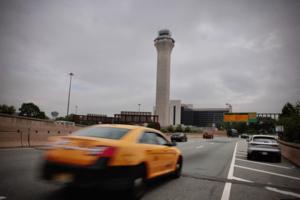Current News
/ArcaMax

House plan sets tax harbor for stablecoins, crypto staking
A bipartisan House duo is drawing up a cryptocurrency tax framework that would provide a safe harbor for some stablecoin transactions and delay taxation of rewards earned by verifying blockchain transactions.
The cryptocurrency sector has clamored for legislation that would clarify the tax treatment of digital assets, even as a broader measure ...Read more
Federal agent fires weapon after being struck by vehicle in St. Paul, police say
A federal agent in St. Paul fired his weapon after being struck by a vehicle in St. Paul on Sunday morning.
St. Paul police were called just after 8:20 a.m. Sunday to the 1300 block of Westminster Street after reports of shots fired and learned that a federal agent was involved in a use-of-force incident, authorities said.
According to ...Read more
Colorado power outages disrupt atomic clock in Boulder
Power shut off across Colorado last week as hurricane-force winds swept across the state. In Boulder, one of those outages caused time to briefly stand still.
The National Institute of Standards and Technology’s Internet Time Service Facility in Boulder lost power Wednesday afternoon, disrupting the agency’s atomic clock, spokesperson ...Read more
Colorado woman dies after 'disturbance' outside U.S. Forest Service office
Colorado officials are investigating the death of a woman in Grand County after witnesses spotted two men putting her body in a car, according to investigators.
Law enforcement responded to the U.S. Forest Service’s Sulphur Ranger District Office in Granby at about 12:05 p.m. Saturday, according to a news release from the Colorado Bureau of ...Read more

Deputy AG Blanche says pulling Trump photo from Epstein file was justified
Justice Department officials were protecting victims of Jeffrey Epstein when they removed several images from agency’s release of files tied to the notorious sex offender, Deputy Attorney General Todd Blanche said.
“There were a number of photographs that were pulled down after being released on Friday,” Blanche said on NBC’s "Meet the ...Read more

Ukraine, US to hold another round of talks Sunday, Umerov says
A Ukrainian delegation is holding another meeting in Florida with a U.S. negotiating team on Sunday, according to Kyiv’s top negotiator, Rustem Umerov, as talks continue over a possible peace deal.
“The third day of work in the U.S.,” Umerov said on social media. “We are working constructively and substantively. We expect further ...Read more

US said to board third tanker off Venezuela as tensions rise
Another oil tanker has been boarded by the U.S. near Venezuela, according to people with knowledge of the matter, as President Donald Trump intensifies an oil blockade on Nicolás Maduro’s government.
The Bella 1 tanker, a Panamanian-flagged vessel sanctioned by the U.S., was en route to Venezuela to load, one of the people said, asking not ...Read more

Hassett says Supreme Court risks creating tariff refund problem
A Supreme Court ruling that scraps Donald Trump’s tariffs — and refunds the import fees collected — would create a major “administrative problem,” the president’s top economic adviser said Sunday.
“We really expect the Supreme Court is going to find with us,” Kevin Hassett, director of the National Economic Council, told CBS’s...Read more

Column: Political giants and moral degenerates: My five best books of 2025
The blame for America’s current troubles lies squarely with the Democratic establishment. Donald Trump’s re-election was always unlikely given his low approval ratings and divisive style. The Democratic establishment turned it into a certainty by: (1) running an aged and obviously ailing candidate (2) using its power over the press, almost a...Read more

Flu season could get a lot worse in the coming weeks, experts say
NORFOLK, Va. — This flu season has been relatively mild so far but medical experts expect it to intensify in the coming weeks due to a new strain that emerged after the current vaccine’s production — though that inoculation remains the best form of protection.
Data out of the United Kingdom indicates the new strain has resulted in the ...Read more

Florida set a record for executions in 2025. What to know
TAMPA, Fla. — When the history of Florida’s modern era of capital punishment is written, 2025 will be marked as a year that saw an unprecedented embrace of the death penalty.
The state executed 19 prisoners this year — the most since the death penalty was reinstated in the 1970s.
Executions have been carried out in cases of defendants ...Read more

New Maryland laws coming into effect New Year's Day 2026
BALTIMORE — As the state prepares for its annual General Assembly session beginning Jan. 14, 2026, there are still new laws from last session set to take effect on New Year’s Day.
Below is a sample of some of the changes coming to Maryland law on Jan. 1, 2026.
No time limits on anesthesia coverage
House Bill 1086 states that if medical ...Read more

One big beautiful bill act complicates state health care affordability efforts
As Congress debates whether to extend the temporary federal subsidies that have helped millions of Americans buy health coverage, a crucial underlying reality is sometimes overlooked: Those subsidies are merely a band-aid covering the often unaffordable cost of health care.
California, Massachusetts, Connecticut, and five other states have set ...Read more

Cozying up to MAGA pays dividends for Germany's far-right AfD
A yearlong campaign by the far-right Alternative for Germany party to court Donald Trump’s MAGA movement is beginning to bear fruit.
Though the country’s largest opposition group is a virtual pariah among the German political elite due to its xenophobic bent, it is gaining traction among ideological allies who hold power in Washington.
...Read more

States crack down on aggressive driving
NEW YORK — On a frigid December morning along busy Broadway in the Astoria neighborhood of Queens, New York, pedestrians walk rapidly toward the subway. Cars and e-bikes speed along a busy two-lane road and blast through sharp turns during the early rush to get to the office.
In recent years on this stretch of Broadway, cars have struck and ...Read more
75-year-old CT man ordered to pay back $1.2 million to over 30 state treasuries
A 75-year-old Greenwich man has been ordered to pay back $1.2 million in restitution to 30 state treasuries after being sentenced to three years in prison, officials said.
Henry J. White, Jr., 75, was sentenced Friday by U.S. District Judge Karoline Mehalchick in Pennsylvania to just over three years in prison for submitting false and ...Read more

Boston Police Blotter: POST Commission suspends Karen Read investigator Michael Proctor's certification
It’s really the end for disgraced former Massachusetts State Police Trooper Michael Proctor, who served as the case officer for both the Karen Read and Brian Walshe murder investigations.
The Massachusetts Peace Officer Standards and Training (POST) Commission formally suspended Proctor’s law enforcement certification, according to a ...Read more

US says it intercepted second tanker in Venezuela blockade
The U.S. Coast Guard stopped and boarded an oil tanker in the Caribbean early Saturday that was last docked in Venezuela, Homeland Security Secretary Kristi Noem said, after President Donald Trump ordered a blockade.
The Centuries supertanker laden with up to 2 million barrels of Venezuelan crude was flying a Panamanian flag, according to ...Read more

Chevron steers risky path to oil's biggest prize in Venezuela
For almost two decades, oil giant Chevron Corp.’s stubborn persistence in Venezuela looked like folly: with billion-dollar investments constantly under threat from the tug-of-war between Caracas and Washington, D.C.
Now, however, that strategy has placed the world’s biggest petroleum prize within Chevron’s reach.
As tensions mount ...Read more

Judge keeps alive subpoenas of Fulton County's 2020 ballots
A judge has cleared the way for the Georgia State Election Board to obtain Fulton County ballots and other documents from the 2020 election.
Fulton County Superior Court Judge Robert McBurney on Friday ruled that the election board is well within its authority to request the information it has sought for more than a year. He ordered the county ...Read more
Popular Stories
- Column: Political giants and moral degenerates: My five best books of 2025
- Flu season could get a lot worse in the coming weeks, experts say
- Florida set a record for executions in 2025. What to know
- New Maryland laws coming into effect New Year's Day 2026
- One big beautiful bill act complicates state health care affordability efforts





